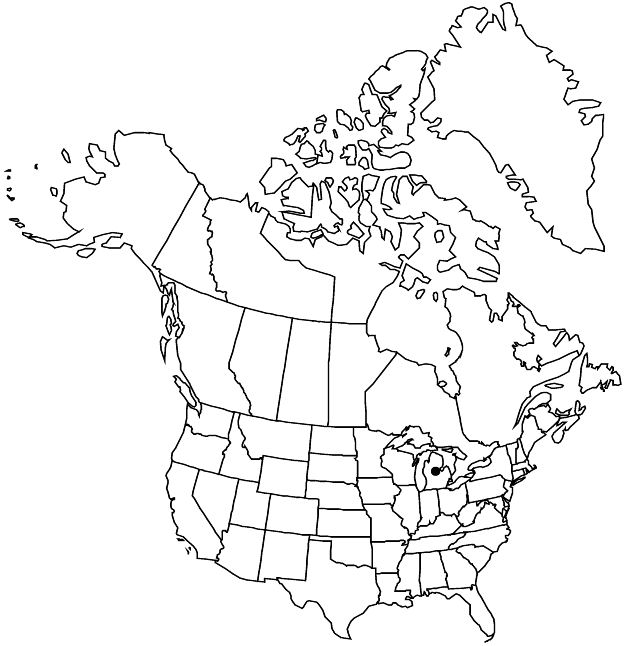Crataegus ×coleae
Trees & Shrubs 1: 7, plate 4. 1902. as species
Shrubs, 40–50 dm, broad. Stems: trunks numerous, spreading, stout, bark close dark; twigs nearly straight or slightly flexuous, slender, new growth light yellow-green, glabrous, marked by oblong pale lenticels, at end of 1st year bright red-brown, very lustrous, 1-year old dark gray-brown; thorns on twigs numerous, straight, stout, 2.5–4.5 cm, lustrous, often retrorse. Leaves: petiole nearly terete, slender, 1.2–1.5 cm; blade ovate to oval, 4.5–5 × 3–3.5 cm, base broadly cuneate, lobes 4 or 5 per side, sinuses shallow, margins sharply serrate, teeth minutely, glandular, glands dark, venation craspedodromous, veins 5 per side, apex acute, abaxial surface pale, adaxial dark green, lustrous, glabrate young, glabrescent. Inflorescences 8–12-flowered; branches glabrous; bracteoles caducous, linear, membranous, margins sessile- or stipitate-glandular. Flowers 18–20 mm diam.; hypanthium glabrous; sepals narrowly triangular, margins glandular-serrate; stamens 20, anthers pink, 0.6–0.8 mm; styles 2–4(or 5). Pomes bright orange-red, at most slightly pruinose, suborbicular, 8–10 mm diam., punctate, glabrous; sepals reflexed, elevated on collar; pyrenes 2–4(or 5), dorsally grooved, sides each linearly scarred.
Phenology: Flowering May; fruiting late Sep.
Habitat: Successional fields, brush
Elevation: 200–300 m
Discussion
Crataegus ×coleae is rare and known from near Grand Rapids from the late 1800s to the 1940s; it is a presumptive interserial hybrid C. pruinosa (ser. Pruinosae) × C. scabrida (ser. Anomalae). The somewhat unstable leaf form and scarred lateral pyrene faces, reminiscent of C. scabrida, and elevated fruiting calyx, 20 stamens, and glabrous parts, reminiscent of C. pruinosa, are good markers.
Selected References
None.
